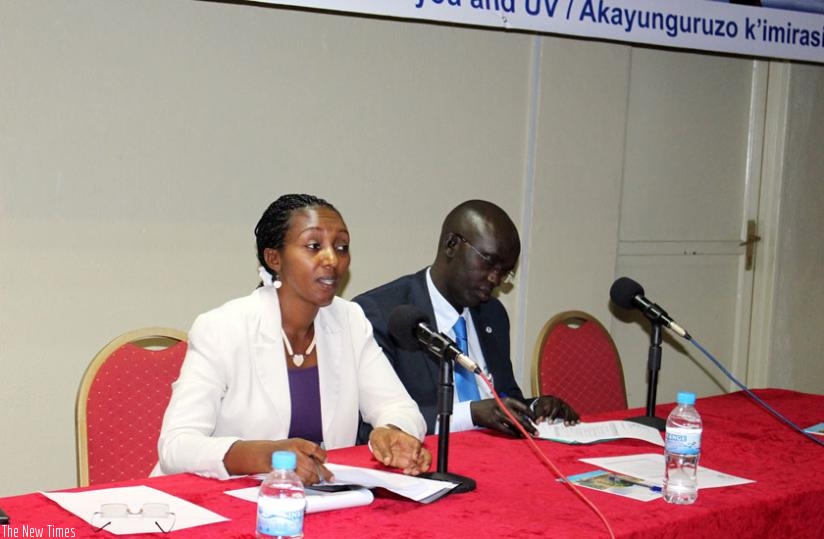The Rwanda Environment Management Authority (REMA) is seeking to reduce import of ozone-depleting refrigeration gas by 30 per cent this year, a move authorities say is pegged on efforts to prevent the depletion of ozone layer.


The Rwanda Environment Management Authority (REMA) is seeking to reduce import of ozone-depleting refrigeration gas by 30 per cent this year, a move authorities say is pegged on efforts to prevent the depletion of ozone layer.
According to Eng. Collette Ruhamya, the deputy director-general of REMA, by 2020 the importation of the gases that are used in appliances like refrigerators and air conditioners will be prohibited.
Ruhamya announced REMA’s decision on Wednesday as Rwanda joined the rest of the world in marking International Day for the Preservation of the Ozone Layer.
The ozone layer is a belt of naturally occurring ozone gas 15 to 30 kilometrers above the earth’s surface and serves as a shield from the harmful ultraviolet B radiation emitted by the sun.
It contains high concentrations of ozone (O3) relative to other parts of the atmosphere, although still very small relative to other gases in the stratosphere.
The importation of ozone-depleting gases, known as R22 or hydro chlorofluorocarbons (HCFCs), into the country was prohibited in 2013.
However, following consultations with the gas importers and other stakeholders, a moratorium was arrived at in order to phase out importation of the gases in a gradual manner, she said.
At least 67.80 tonnes of the gas was imported in 2012, a figure that jumped to 75.8 tonnes in 2013. Seventy-two tonnes were imported last year.
"We preferred to gradually phase out the gases in order to avoid losses for those who had imported them previously,” Eng. Ruhamya said.
She acknowledged that REMA faced challenges implementing the policy.
"We still face a few cases of illegal importation of the gases because some people buy them at low prices from countries that know the materials are being prohibited globally, while others mislabel their imported appliances to make them look like they are ozone-friendly,” she said.
The appliances that are ozone-friendly and allowed into the country are given the labels ‘134A’, ‘R600A’ and ‘R290’.
According to Dr Emmanuel Rudakemwa, the secretary of the Rwanda Medical Association, ozone layer depletion is increasing the incidences of cancer around the world.
"Although we need cancer registry to know the status, we have experienced many cases related to high radiations due to ozone layer depletion. Starting from rashes, sun burns, skin dehydration and premature aging, there is a serious type of cancer known as melanoma whose cases are increasing.”
editorial@newtimes.co.rw


